#Jamie Childs
Text

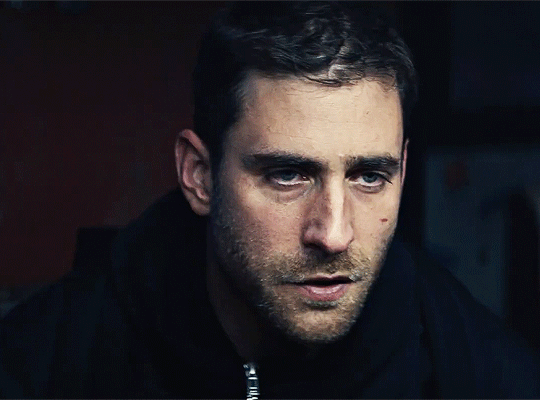
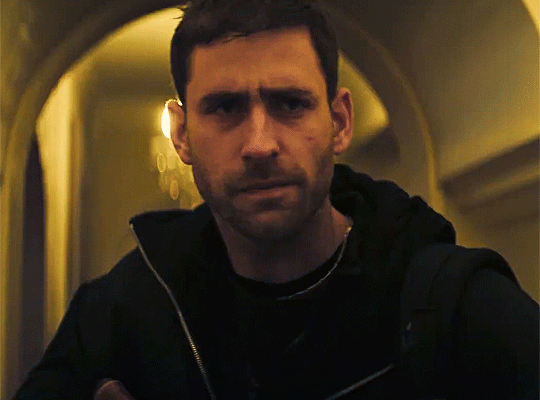
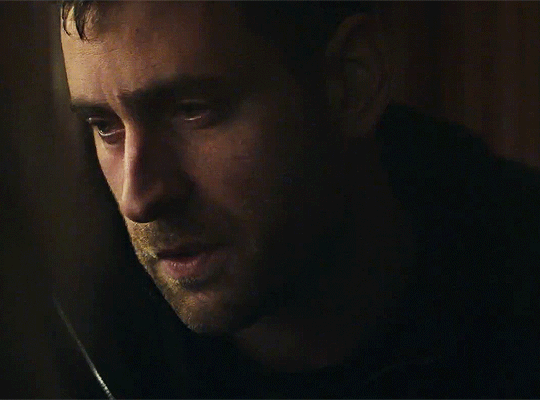
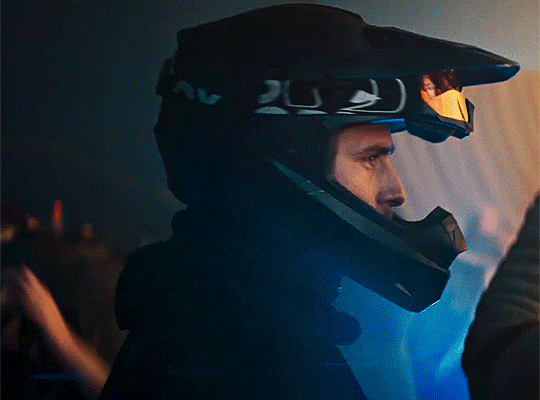
JACKDAW (2024) dir. Jamie Childs
#jackdaw#jackdaw film#oliver jackson cohen#oliver jackson-cohen#jamie childs#filmgifs#filmedit#dailymen#mancandykings#uservulcan#usermichi#ojc#m*#lil squishy face 🥺
268 notes
·
View notes
Text
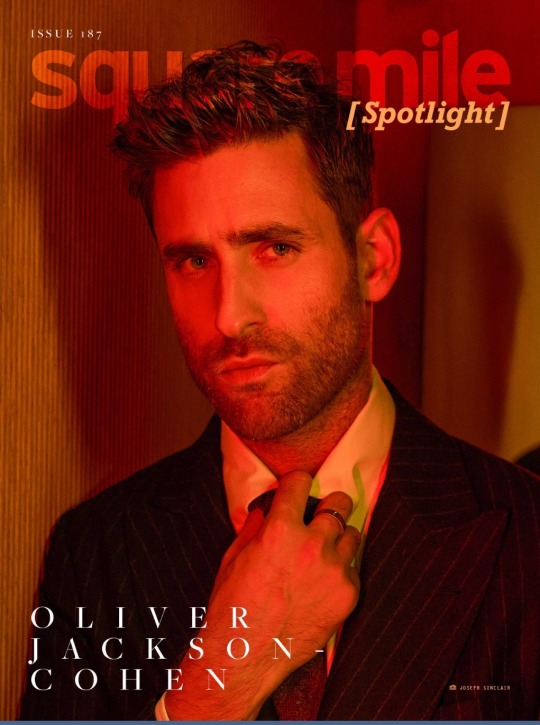
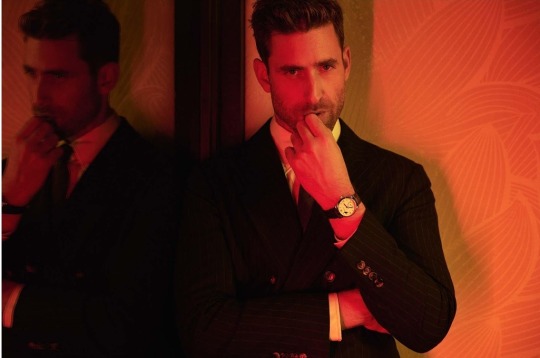

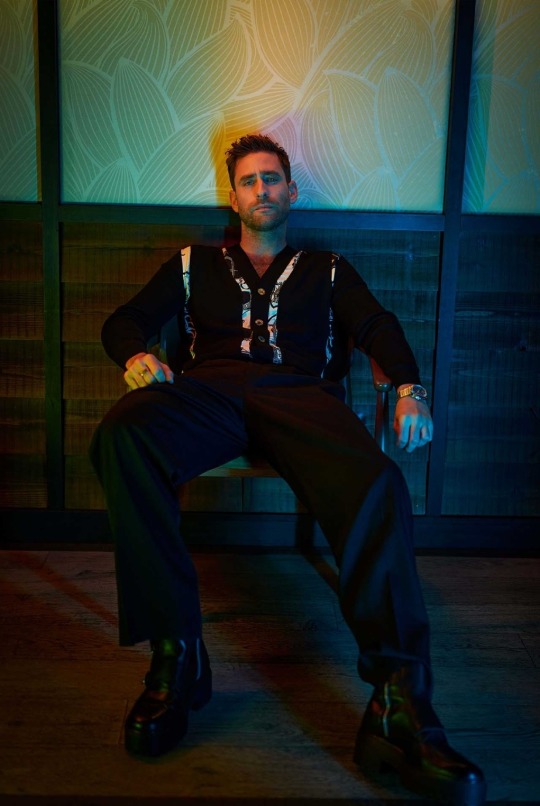
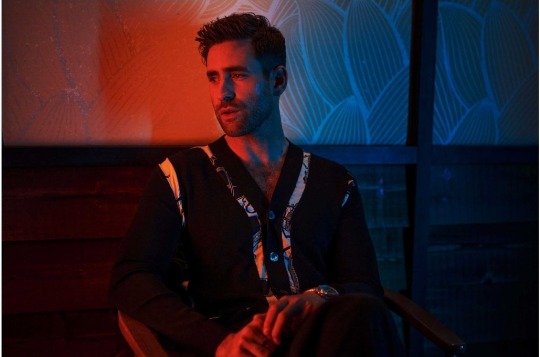

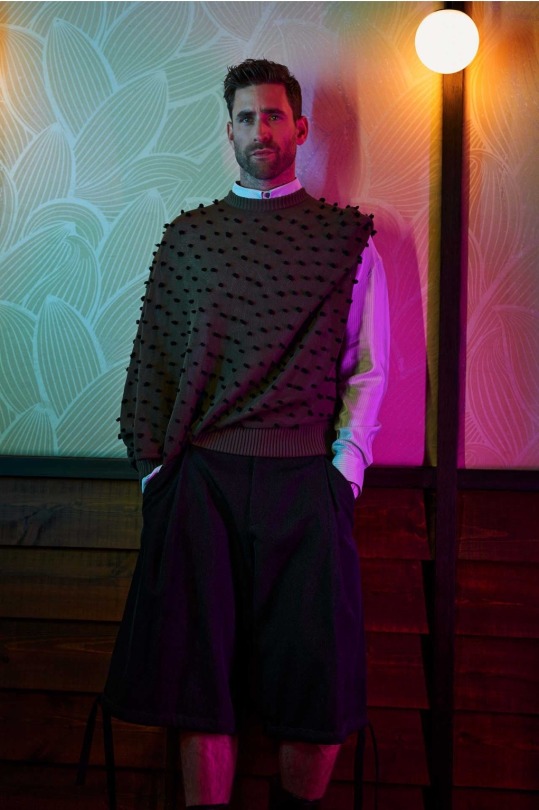

Few actors have endured as fraught a journey as Oliver Jackson-Cohen. Few actors are more in demand than the star of The Haunting of Hill House and Jackdaw
by Maeve Ryan
OLIVER JACKSON-COHEN HAS been doing this a while. He decided to act at the age of six. Joined a theatre troupe and began to climb. He continued until university but didn’t get into any drama schools. Throughout our conversation, he tells me there were no signs pointing him in this direction, no surefire chance at success. But he’s found it, and then some.
He rose to prominence with his highly acclaimed portrayal of Luke Crain in Mike Flanagan’s The Haunting of Hill House.
A character that battled a heroin addiction to cope with past traumas, though addiction was the least interesting thing about him. The show featured stars of the past, and launched new ones into the present, Oliver Jackson-Cohen being one of them. The role of Luke changed the course of his life – for more reasons than one.
It was the first time in his life he no longer had to hide, he tells me. “I could be as fragile as I felt.” He took his newfound Netflix fame and began to carve a path that finally aligned with who he was, not who the world wanted him to be.
Now, he takes centre stage in Jamie Dobb’s new film Jackdaw. When he read the script, he thought he was the last man for the job. When Dobb explained the hyper masculine lead needed someone to bring softness behind it, he signed on.
Jackson-Cohen’s career, and presence, proves that the strength of a man lies in his ability to go beyond society’s standards. He breaks the stereotypes like bread over a long conversation in Soho. We discuss his entrance into the industry, facing traumas, and finding a safe place to land.
sm: What was the first movie you ever saw that made you want to act?
o-jc: Home Alone. I remember seeing that film and saying, oh whoa, so a kid can do this? I remember telling my dad, ‘I think I want to do that.’ I was six or seven.
But it gets dark. So, my mum and dad’s house had a bay window that was on the street. And when I came home from school for a week, I just sat in the window thinking, any minute now, someone from Home Alone is going to walk past, and go, there’s a kid! Let’s get him! I was willingly wanting to get kidnapped. Which is so fucked. My dad came home and was like, ‘What are you doing?’ And then he was like, ‘Yeah, that’s not how that works.’
We found a theatre program – I started going there when I was eight. I was never the golden kid. In the drama clubs, I was always like the snake in the background. Or just the scenery. We used to put on terrible plays. I was such an insular kid. I found a safe place to feel where it’s real, but it’s not. So you can experience it all. I did that for three years, and then I was kicked out.
sm: What! Why?
oj-c: I had an attitude or something like that. I got suspended so many times. I genuinely was not looking for trouble. I was always the one to get caught. Like, I was the kid who someone handed the knife to, and I’d be standing above the dead body, and then the next thing I knew it was 20 years in prison. It was always stuff like that. But it was time to move on anyway.
I found this drama school at Riverside Studios. It was a small group, maybe eight or nine people. It was so interesting, because I’m going to do a gross name drop, but in the group was Carey Mulligan and Imogen Poots. It was incredible.
sm: Those were the kids that were just there? Did you have to audition?
oj-c: No, but I did a trial. It was a lot of devised stuff, like improv. A guy named Andrew Bradford ran it. He really supported kids. It was all day Saturday. We were all teenagers. It felt like another life. It grew and grew and by the time I left I was 17 or 18. It wasn’t one of those places that you were beaten down. No fake bullshit. It was a safe place to try stuff. We’d put on plays and we all got agents from that as kids.
sm: Is that the moment you look back on and think of as the beginning?
oj-c: I think so. But it was such a long period of time. Career wise, it was quite stagnant. I did one job when I was 15 that was some late night soap. Then I didn’t do anything until I was 18. I wasn’t like this is real until later. It started to snowball when I finished school. I went to get a French lit degree, hated it, dropped out, and applied to drama school. I didn’t get in anywhere.
In the meantime, there was a job at the BBC for a silly period drama. I did that, took the money, and went to do a foundation in New York at Strasberg.
sm: Tell me about the audition for drama school. You didn’t get in anywhere?
oj-c: Yes. I’m telling you there were no signs that pointed to me saying, yeah, you’re quite good at this. It felt like everyone was saying, ‘don’t do it.’ Which is a really interesting place to start from. If no one around me believes in me, how do I? And I just keep going? It was a mix of delusion and stupidity.
sm: Did you think about doing something else?
oj-c: When I was still in high school, I worked as a runner on productions, mainly at the BBC. I was revolving through that so when I finished school, that was kinda my job.. I got to see the inner workings of how sets worked, rehearsal periods. I got to see the writers and the actors, how they would construct a joke, and adjust things.
When I was 17, I started doing the European Music Awards. I would go and work in the costume department, I didn’t fucking know anything about how to sew on a bun but it was amazing. I got such a solid understanding of how a production office works, how a schedule works.
Tragically, you see a lot of how an actor is a small cog in this machine. Everyone is working so diligently. This whole idea of superiority that can go on, it was important for me to witness early on. Because when you go onto set and someone says five minutes, it actually means five minutes. But it was also hard because I was watching people do what I love. I didn’t get into school, so I said fuck it, I’m gonna do a foundation for a year and reapply to drama school from New York.
sm: Why choose the Strasberg program?
oj-c: Someone told me about it. I thought I needed to go do something that gives me a playground, a space in the meantime. But when I got there, I was with this small agency, and they started sending me out on auditions. The first or second one I went on, they flew me to LA to do a screen test and I got it. This was six weeks into the program. I was like: what do I do?
sm: What did you decide?
oj-c: There were three or four movies I got, but then the financial crash happened and it all fell apart. So I went back to New York to continue with the program. But meanwhile, I had been signed to WME and my agents were like, let’s go down the studio route because that’s going to be fun. I got an audition for this Drew Barrymore movie, got that, and then I dropped out. Then got another job that moved me to LA. I was there for a year shooting and doing the prep for that.
The whole idea was that I’d do that and reapply to drama school. Then I kept on booking. It’s only in the past couple years I was like, thank fuck I didn’t stop. There were moments that I thought I needed to stop and do three years of training.
sm: Did you feel like you were missing something that other people had?
oj-c: I felt like I was back-footed. Like I had no idea what I was doing, then I realised no one does. There is no arrival point where you’re like, ‘I know how to act!’ A lot of it was becoming comfortable with learning and making mistakes. Some will hurt and some don’t matter.
sm: So you start booking jobs, and then it just keeps going? No break?
oj-c: There’s obviously periods where you’re out of work. Or you really want a job and you do 50 auditions for it and you don’t get it. A lot of that went on. But I was 22. I ended up staying in New York until I was 28. I felt like a deer in the headlights. I was just so grateful that I was working and that people wanted to hire me that I never stopped to ask if it was actually fulfilling.
I listened to a lot of people early on. I needed guidance. I needed someone to say, do this job, this will lead to this, or it’s important you work with this person. Then I woke up one day and was like, is there anything here that I’m actually proud of?
That comes with experience and maybe a little bit of delusional confidence where you go, I think I want to try and do something here that is more aligned with me. It was a weird time to be in LA. I’m six foot three. I look a certain way. People wanted the product. I thought that was how I’d get there. I’ll pretend to be confident, I’ll be a version of what these people want. Keep my mouth shut and pretend. I reached a point where I was like, I cannot keep going this way.
sm: Did you feel that you’d abandoned yourself? Or was it a slow realisation?
oj-c: It became harder and harder to pretend to be this chill guy. I’m not chill. But when you’re handed something, you go, this is fun. Then the more you read and become accustomed to the environment you’re in, you start to feel entitled to have an opinion. To feel entitled enough to say: I actually don’t like this, I actually find this quite soul destroying. Having to make myself small, or block myself off and not be as vulnerable as I feel. To not show that.
It was an interesting time – in the late 2000s, men were men and what I was being asked to do was be an idea of what a tall, white, masculine man was that sort of never really sat. I actually feel really fragile. So I took a break for six months. I was like, I’m just going to say no now and try to re-shape the direction of what I want to do. Then The Haunting of Hill House came along.
sm: How did that audition happen?
oj-c: I’d done a film with the producer before. They sent me a conversation that happens in the show between Luke and his twin sister, it was him asking her to get him drugs. They asked me to read that and literally the following day, they called me and were like yep, you.
means something to people. It was an amazing thing to be a part of.
sm: Did you immediately recognise that Luke was the kind of character you were looking to play on the page?
oj-c: Sort of. If I’m honest, I did quite a lot with the role. Mike was very open to collaborating. I put a lot of stuff in there that wasn’t necessarily there originally.
All of the siblings were there but they were sort of blank canvases for anyone to put whatever they needed to put in it. We all came in and made bigger choices to create this family dynamic. They brought on this incredible writer, Scott Kosar, who wrote The Machinist, to tackle the Luke character because he was in recovery at the time.
sm: The writer was in recovery?
oj-c: Yes. He tackled all those monologues about staying clean and everything. That was him. You know, you’re talking about a family that lived in a haunted house, that’s sort of a silly premise but all the substitutions that everyone did, it was all about trauma. Living and being followed by things unless you face them.
sm: What did you bring to the Luke character that wouldn’t have been there if somebody else played it?
oj-c: Someone else would have brought something amazing to it. But Mike Flanagan had so many tapes come through of people playing the addiction, and you can’t play the addiction. When I first looked at Luke I was like, okay, he’s a heroin addict, but then I was like, actually, to put a label on that, to label him, does such a disservice.
So it became about what he was running from, and what was terrorising him. For me, it became about childhood sexual abuse. How do you escape this thing you don’t want to feel? And if you can’t keep it at bay, it will take over. It became about that struggle, not ‘I need my fix.’ It became about this terrorising thing that’s always present, which translates into the show. We all have things that follow us. It became about trying to humanise it and make it real by using that as a way in.
sm: You’ve been open on social media about the sexual abuse you faced as a child. How did you navigate acting something so close to home?
oj-c: I’m of the school of thought: use whatever is real for you. That’s why I do the job. A lot of us use our own personal experience, but we bring it to a safe space where it’s okay for us to experience it. In a way it calls for that, and it felt important to do for the show.
I come back to this idea of needing to stop and reassess what I wanted to do, where I wanted to go, and what I wanted to say in the work that I do. I felt like I couldn’t keep hiding. We’re all complicated, we’ve all had complicated upbringings. That’s just part of life. It’s unfortunate, but it’s sort of always going to be a mess. I needed to put everything that I felt into something. I do that all the time.
We use the parts of yourselves. Including the darker parts, and some of the stuff we don’t want to look at. I’ve never been one of those people to go half on something. You either do it or you don’t. There’s no middle ground. I’m not going to half step in, or pretend.
sm: Did you have any practices while filming to help you not carry the hurt from that world into your own?
oj-c: What was interesting was that all of that sadness was in there anyway. I wasn’t generating any of it, I was just opening it up. I didn’t whip myself up into a frenzy. It just felt like I didn’t have to hide, or pretend it wasn’t there.
sm: Would you say acting has been healing for you?
oj-c: I don’t think the word healing is correct. But it’s been incredibly helpful in helping me understand myself better. It’s probably not the healthiest but I’ve said this before, I feel like I need the job to lay out all my neuroses and vulnerability. I keep myself so closed off in real life. It’s an outlet that feels necessary. That’s why I go off to work every couple days.
sm: You are cast in a lot of thrillers and horrors. Why do you think you mesh well with that genre as an actor?
oj-c: You know, after I did Haunting of Hill House, it was sort of this big thing where the amount of horror scripts that came through was crazy. The amount of, ‘do you want to play a drug addict?’ It’s incredible how desperate people are to put us into boxes.
After Hill House, I did The Invisible Man. That was a horror but the messaging - we’re talking about gaslighting, we’re talking about toxic relationships to an extreme. It was so much more than a scary film. It felt like it had something to say. That’s the thing about horror. When it’s done well, it’s incredibly impactful.
sm: After Hill House, did you feel you had agency when choosing your roles?
oj-c: To a certain extent. But no matter where you’re at: the job you want, they don’t want you. You can be Julianne Moore, but they’d rather have someone else. It’s constant. But it did change quite a lot. In terms of becoming Netflix famous, which is the strangest, most intense thing ever because you’re the most famous person on the planet and then something else comes out. I felt like I was in a fortunate space where I could choose more, but there were films that I really wanted that I didn’t get.
sm: I heard that when you first read the Jackdaw script, you didn’t think you were right for the role?
oj-c: Yes. I called the director Jamie Childs and told him he was nuts. Because again, here’s this hyper masculine man that felt quite robotic on the page. I met Jamie on the set of Wilderness. He was telling me, ‘I’ve written this movie. I’d love to get your feedback on it.’ So I read it. It was still an early draft. Then he said, ‘Do you want to do it?’ I genuinely thought I wasn’t the right fit. I thought it was just out of convenience that he wanted me.
He said to me, ‘It needs someone to come in and make it human. To give it vulnerability.’ He said the film is about how this man readjusts his life following the death of his mum, and I was like, sold! You need some tears? I’ll bring you tears! I’m never leaving my sad boy era. It happened so quickly. We wrapped Wilderness, and then started filming three and a half weeks later. We were up north in January.
sm: You go swimming in the North Sea quite a bit in the film…
oj-c: Oh yeah. It got to like minus nine. It ended with me getting hypothermia. I think I’m a bit too delicate, that’s why. I had this amazing stunt guy called Jamie Dobbs who’s this gold motor-cross champion, and we had to shoot all this stuff of us in the night. They’d get me on a rig, and then they’d get Jamie and it got to minus 12. He got frostbite on his face. It was unbelievable. It was all night shoots. I am so surprised we all made it out alive.
sm: Had you ever cold plunged before?
oj-c: Not at all. I’m one of those people in August that’s like, I don’t know if I want to go in the sea, it looks a bit cold. We did three days on the water. Some of it was in a kayak. The underwater stuff, that’s where it got brutal. We were all eating every 25 minutes because we were so cold. There was a boat just for food. I couldn’t name one thing we ate. It was just fuel. We were going to work at 5pm, and then wrapping in the morning.
sm: Do you often try new things on film sets that you’d never do otherwise?
oj-c: Yes, all the time! That’s part of the allure of it. You get to learn all these weird things that you’d never do. You get to experience these amazing things. I’ve been doing this for so long, because I’m 150 years old, and someone will bring something up and I’ll be like, oh I’ve done that! But then I’m like wait no I didn’t, the character did.
sm: Was there anything else you learned on the set of Jackdaw? Motorcross?
oj-c: Yes! I fucking loved it. If I’m honest, a lot of it is me jumping on and starting up and then getting out of frame. Insurance-wise, I couldn’t do any of the jumps or anything. But it is so great. There is nothing quite like it.
sm: Do you ever think you’ll get into the writing side of film?
oj-c: I have. I just don’t know what I have to say yet. Everyone reaches a point where they think, I don’t want to forever be a product. It would be nice to be part of the creative. I have a lot of opinions.
You go into a job with the best intentions. This is what they’ve told us, this is what’s been sold and then you’ll see the final product and be like: that’s not at all what I thought it would be. The more you do it, the more you feel like you know what you actually like and what you want to be part of. I’ll get to it at some point.
Jackdaw is in cinemas now.
#oliver jackson-cohen#oliver jackson cohen#jackdaw#jackdaw film#jamie childs#2024#interview#cw: csa#mike flanagan#haunting of hill house#luke crain#jack dawson#i have that home alone anecdote memorised by now 😭#he writes!
68 notes
·
View notes
Text

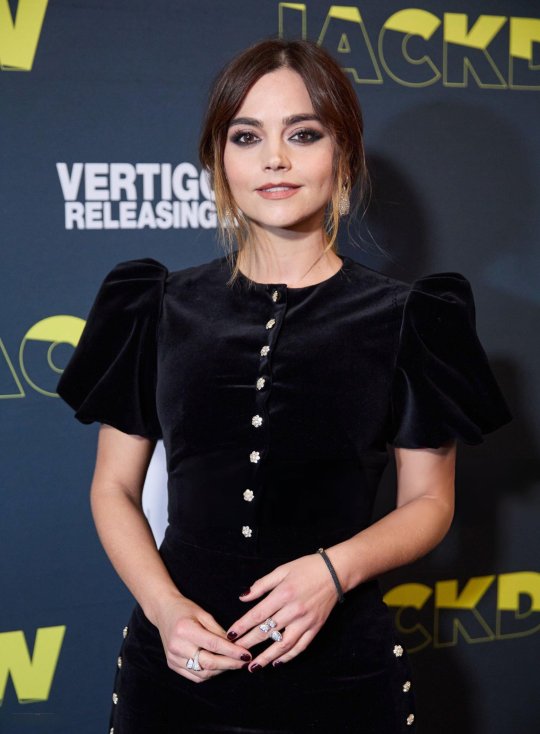
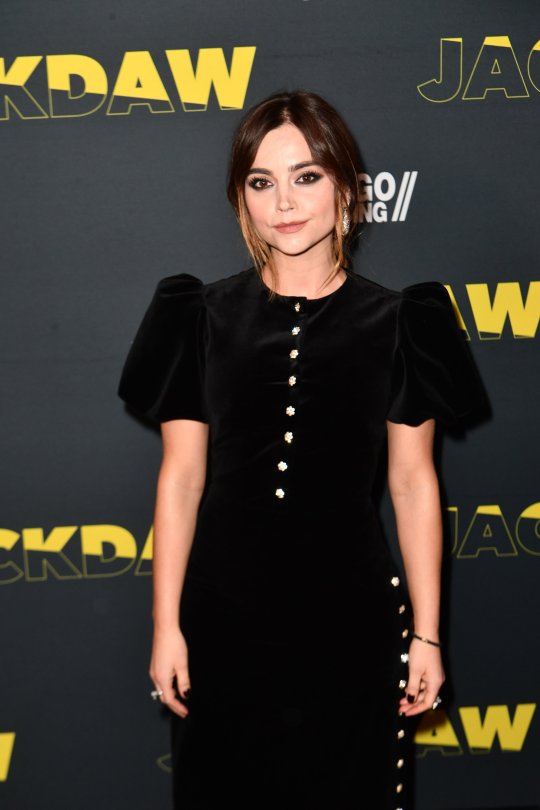



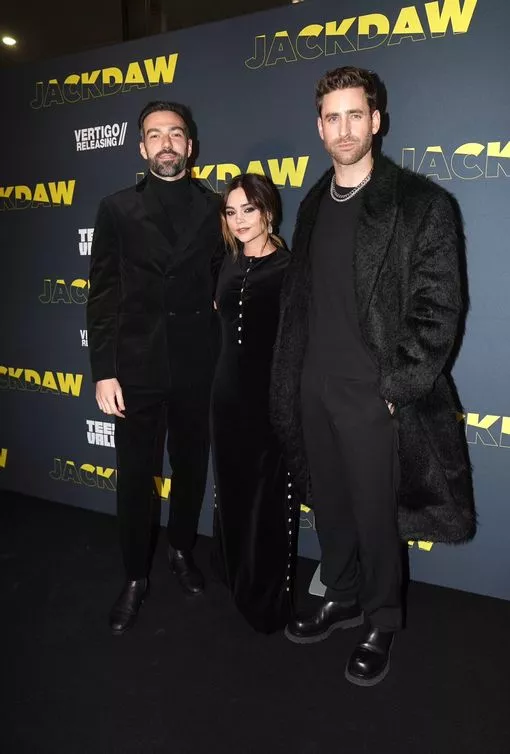


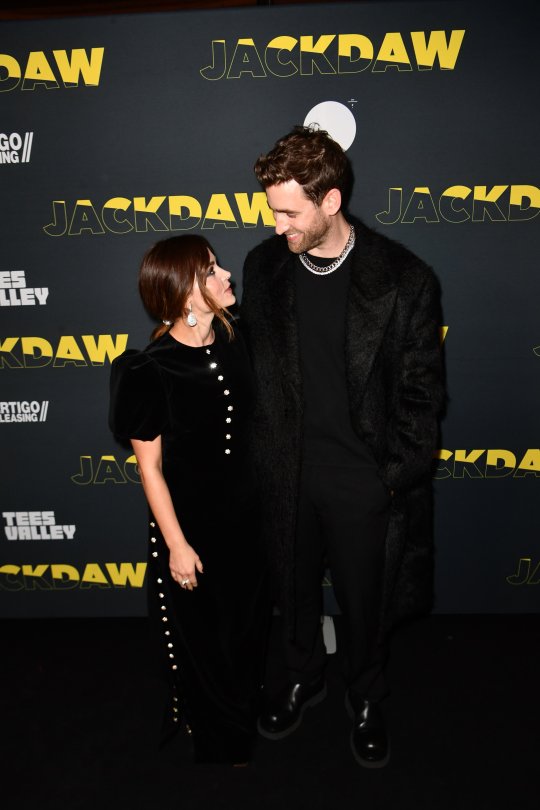


Jenna Coleman with Jamie Childs and Oliver Jackson-Cohen at the premiere of Jackdaw!
#jenna coleman#jenna louise coleman#jamie childs#oliver jackson cohen#jackdaw#jackdaw film#jackdaw movie#jackdaw premiere#premiere
58 notes
·
View notes
Text
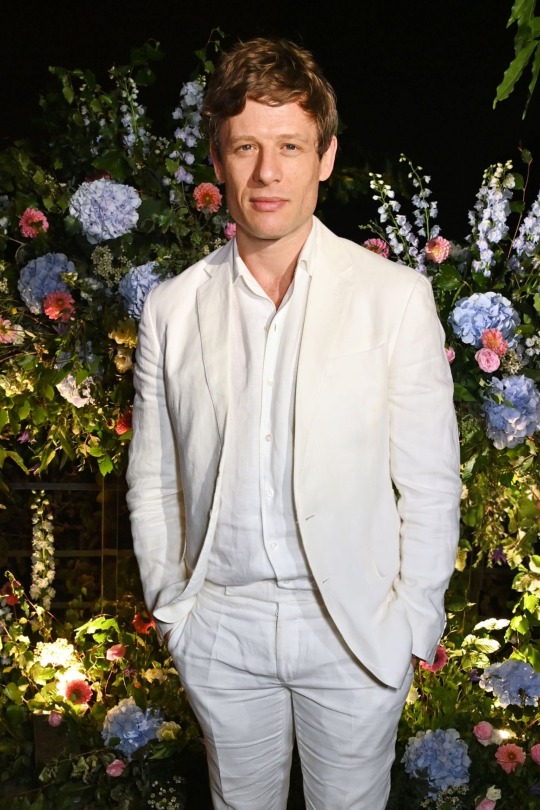

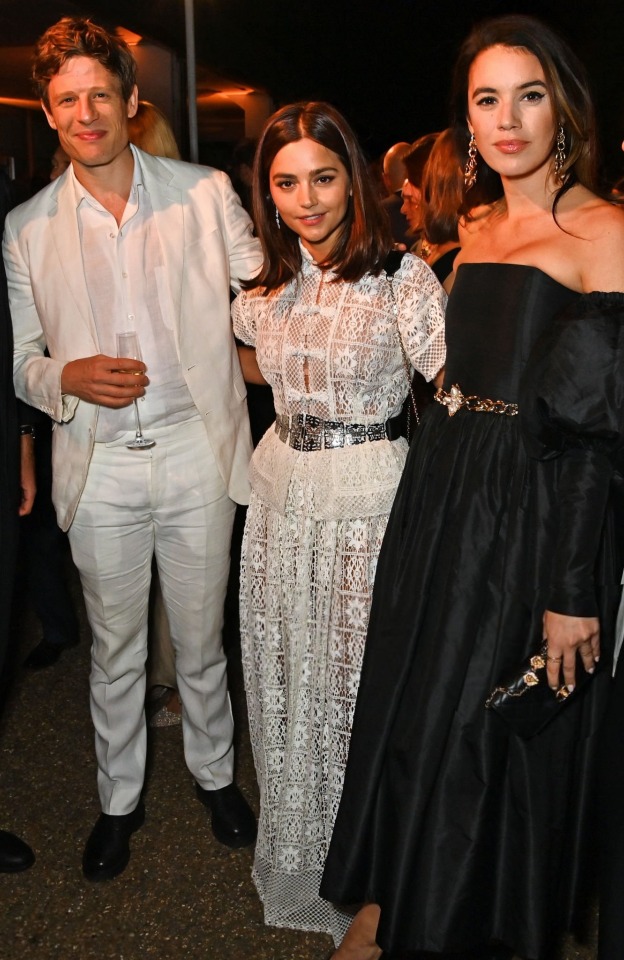
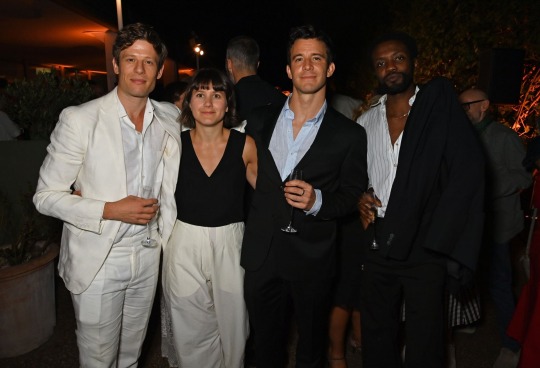


James Norton and the cast of A Little Life attended the Ambassador Theatre Group dinner party in honour of Sarah Jessica Parker and Matthew Broderick. Kensington palace, London, 13 September 2023
#james norton#luke thompson#omari douglas#jenna coleman#gala gordon#sara-ella ozbeck#jamie childs#sarah jessica parker#matthew broderick#emily vaughan barrett#events
52 notes
·
View notes
Text
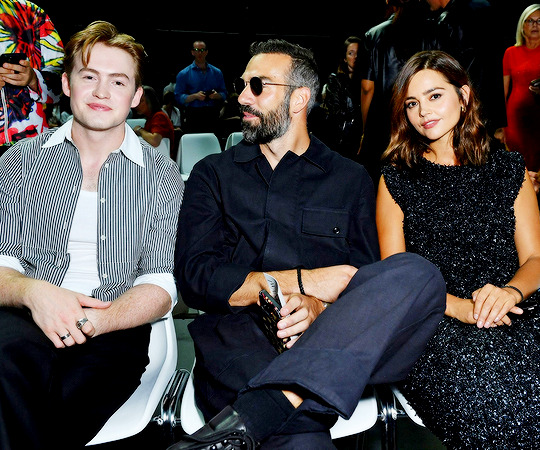

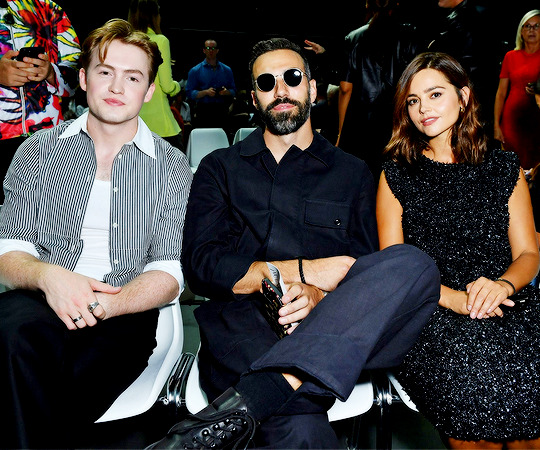
Jenna Coleman, Kit Connor, Jamie Childs, Suki Waterhouse and Charli XCX attend the JW Anderson show during London Fashion Week September 2023 at The Roundhouse on September 16, 2023 in London, England. (Photo by Jed Cullen/Dave Benett/Getty Images)
#jenna coleman#jenna louise coleman#jlcedit#jcolemanedit#edits#events#suki waterhouse#charli xcx#kit connor#jamie childs
49 notes
·
View notes
Text
𝕋𝕙𝕖 𝕊𝕒𝕟𝕕𝕞𝕒𝕟
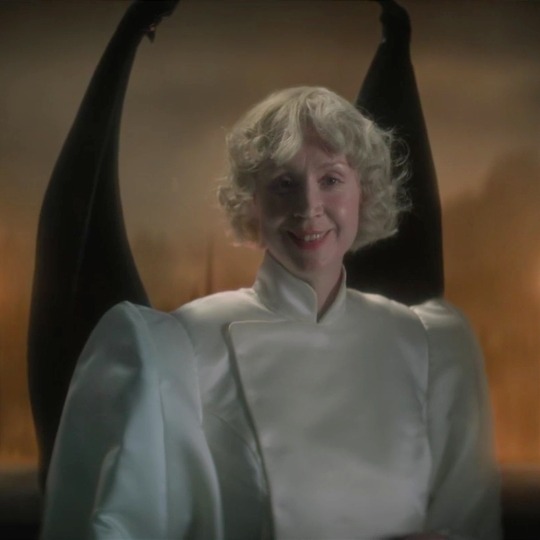





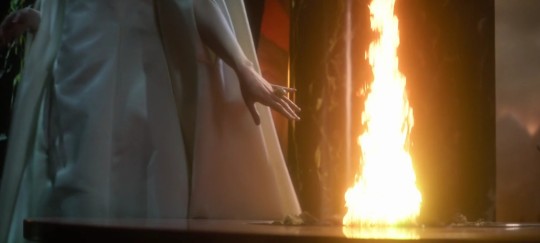
Gwendoline Christie as ʟᴜᴄɪғᴇʀ ᴍᴏʀɴɪɴɢsᴛᴀʀ (S01.E04 • dir. Jamie Childs • 2022)
#the sandman icons#the sandman edit#the sandman#the sandman s.01 ep.04#the sandman netflix#netflix#warner bros#lucifer#lucifer icons#lucifer morningstar#morningstar#lucifer morningstar icons#gwendoline christie#gwendoline christie icons#jamie childs#the sandman season 01
167 notes
·
View notes
Text
The Sandman episode 5 was a whole fever dream. The diner episode was just insane
Like I didn’t even notice it was getting dark until it all went down
It went from like completely mundane with clear skies to everybody is dead it’s raining and the powers out
What a smooth transition though. It was such a gradual darkening I didn’t even notice stuff until it was super obvious
#the sandman#Netflix#the sandman spoilers#the sandman netflix#neil gaiman#season 1 episode 5#24/7#tom sturridge#david thewlis#dream of the endless#morpheus#jamie childs
208 notes
·
View notes
Text
Kit Connor, Jamie Childs and Jenna Coleman attend the JW Anderson show during London Fashion Week
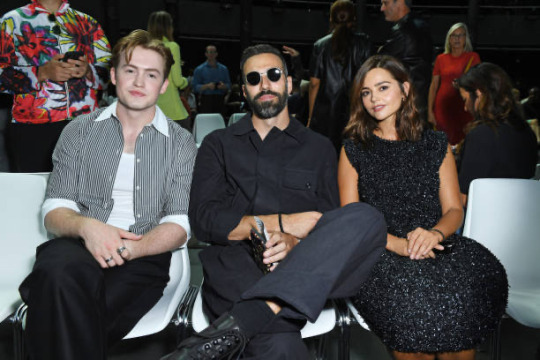
10 notes
·
View notes
Photo

The Sandman
Season 1, “A Hope in Hell”
Director: Jamie Childs
DoP: Sam Heasman
#The Sandman#A Hope in Hell#The Sandman S01E04#Season 1#Jamie Childs#Sam Heasman#Tom Sturridge#Morpheus#Dream#Austin Guzman#Neil Gaiman#Netflix#PurePop Inc.#The Blank Corporation#Phantom Four#DC Entertainment#Warner Bros. Television#TV Moments#TV Series#TV Show#television#TV#TV Frames#cinematography#August 5#2022
48 notes
·
View notes
Text
Interesting interview with Jamie Childs about directing Jenna Coleman's new film "Jackdaw". In the interview he mentions that the film came about because he was between jobs and "basically unemployed" and "Also, my partner basically stopped talking to me on a holiday. She was rehearsing for something she was doing next, and basically, I realized that she just needed to get her head into it. So, I put my headphones on and began writing, and that when it all started."
As it's public knowledge that his partner is Jenna Coleman, he's likely referring to either Wilderness or even the Lemons play, which means we may have either (or both) to thank for Jackdaw being made. If it was due to her rehearsing the play, this confirms my suspicion that the production of Jackdaw came together very quickly, though it's also suggested that Oliver Jackson-Cohen was made aware of it while meeting with Jamie for something else, implying Wilderness.
Other tidbits: he confirms he's directing for Sandman season 2 and talks a bit about the strikes shutting that down (no clue given about Jenna's involvement, though), and at the moment it doesn't appear that he will be returning to direct Doctor Who anytime soon.
His final word is that he might direct a romantic comedy next ("Who knows?). If he does, I'm sure he has the contact information of at least one actress he can call upon who would be amazing.
One last thing: ScreenRant is one of the latest sites to declare war on adblockers, so you might need to jump through a hoop to read this.
7 notes
·
View notes
Photo





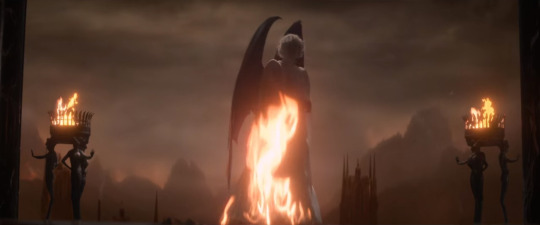
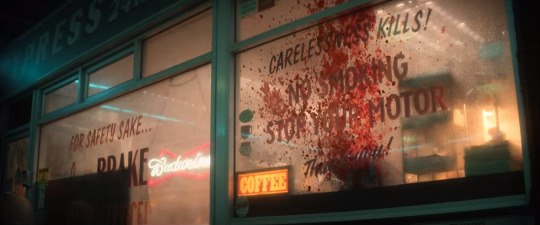


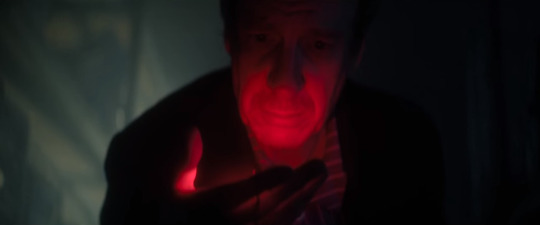
**Shots of the Episode**
The Sandman (2022)
Season 1, Episode 4: “A Hope in Hell” (2022)
Director: Jamie Childs
Cinematographer: Sam Heasman
#shots of the episode#a hope in hell#jamie childs#sam heasman#sandman#the sandman#the sandman series#2022#the sandman netflix#neil gaiman#sandman netflix#tom sturridge#morpheus#gwendoline christie#david thewlis#lucifer#lucifer morningstar#fantasy#dc#dc comics#cinematography#stills#tv stills#screencaps#screenshots#2022 tv#2.35:1#sandman spoilers#sandman season 1#hope in hell
76 notes
·
View notes
Text
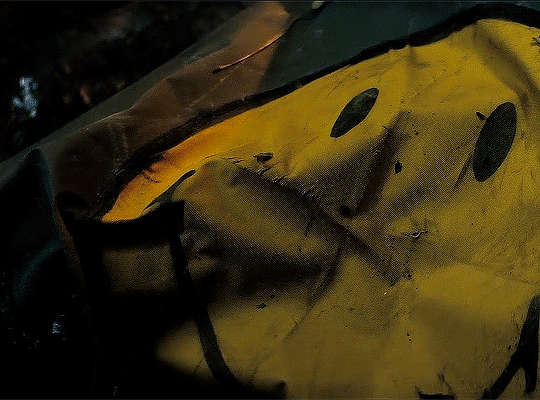
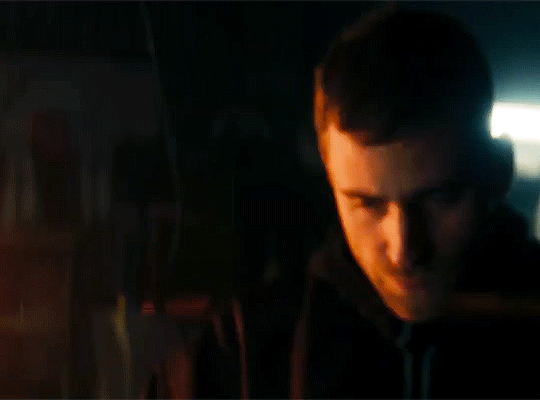

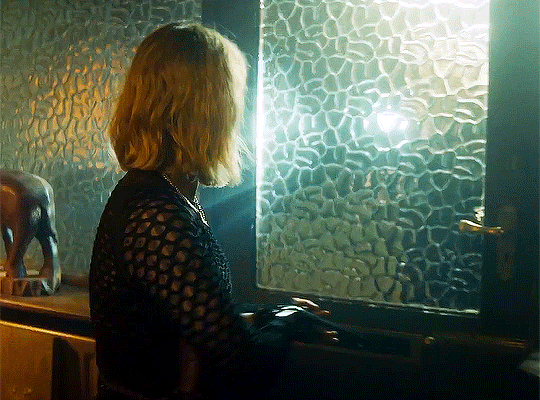
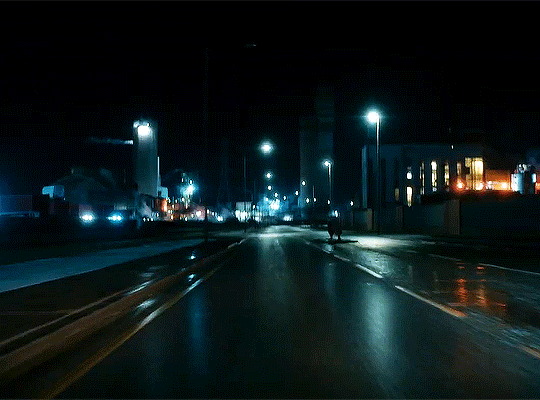
JACKDAW (2023) dir. Jamie Childs
#jackdaw#jackdaw film#oliver jackson cohen#oliver jackson-cohen#jenna coleman#ojcedit#oliverjacksoncohenedit#jamie childs#filmgifs#filmedits#moviegifs#fyeahmovies#uservulcan#usermichi#m*#ojc
88 notes
·
View notes
Text
a few first photos of oliver at the jackdaw premiere. the event is happening right now so i will be reblogging this post with any new additions.

-- from the jackdaw.movie instagram account


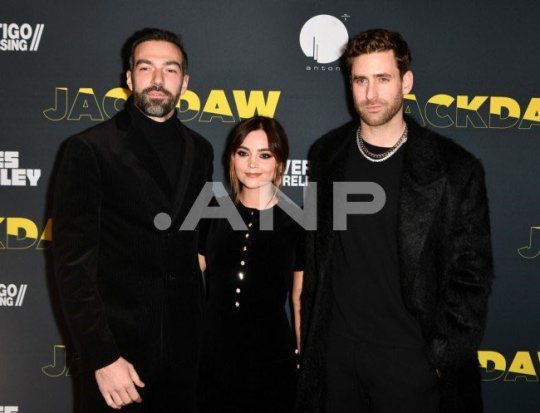
oliver with jamie childs and jenna coleman on the "black carpet." via @oswincoleman
there's also a short video up of the trio on x/twitter here. more to come!
#oliver jackson-cohen#oliver jackson cohen#jenna coleman#jackdaw film#jackdaw#jamie childs#premieres#2024#videos
33 notes
·
View notes
Text



Jenna Coleman with David Tennant and Jamie Childs at the Evening Standard Theatre Awards today!
#jenna coleman#jenna louise coleman#david tenannt#jamie childs#evening standard#evening standard theatre awards#theatre awards#doctor who
41 notes
·
View notes
Text
His Dark Material Season 3 Review
His Dark Material Season 3 Review
His Dark Materials by Phillip Pullman has been an entertaining series thus far on HBO Max. The series has established a great group of characters and a legitimate world-saving storyline. Or in the case of the series worlds saving. The showrunners have asked the viewers to pick sides and in season three that is even more present. This is the last season of this series so all the subplots have to…
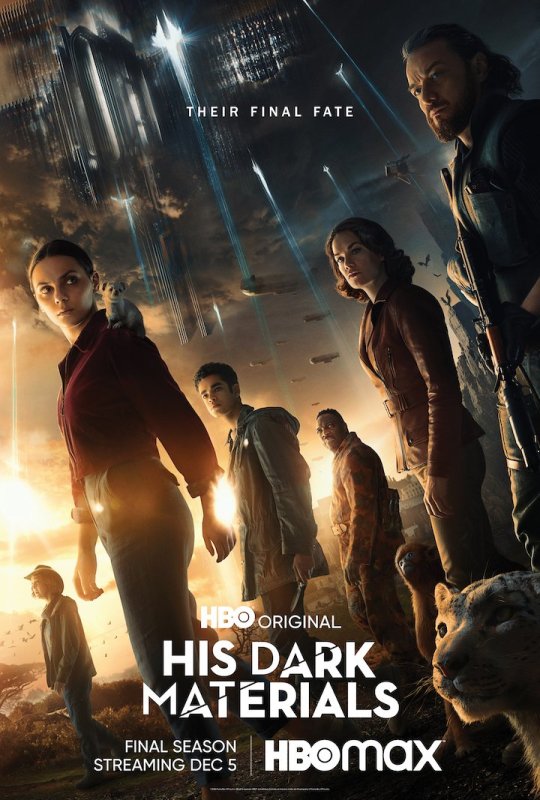
View On WordPress
#Amir Wilson#Dafne Keen#HBO Max#His Dark Materials#Jack Thorne#James McAvoy#Jamie Childs#Phillip Pullman#Rith Wilson#William McGregor
3 notes
·
View notes
Text



Jenna Coleman attends JW Anderson at Camden Roundhouse during London Fashion Week September 2023 on September 16, 2023 in London, England. (Photo by Neil Mockford/GC Images)
16 notes
·
View notes